Sleep Talking in Children – Causes and Tips to Deal
As the name suggests, sleep talking – also known as somniloquy- is a disorder in which the person talks in their sleep, either coherently or in a gibberish manner. While anyone can have this disorder, it is more common in men and children (3). It may seem scary at first. However, it is not necessarily a cause for concern. While sleep talking is generally harmless and tends to fade away as children grow older, understanding its causes and implementing effective coping strategies can reassure parents and promote better sleep hygiene for their children. Keep reading to learn about various causes of sleep talking in children and ways to deal with this disorder.
How Common Is It for Children to Talk in Their Sleep?
Sleep talking is a normal occurrence in children, both older and very young. It’s not uncommon for about half of children aged 3 to 10 to engage in sleep conversations. These conversations can range from simple mumbling to more expressive sounds like laughter, crying, or groaning (1). This is particularly common during deep sleep. Importantly, there’s no significant link between sleep talking and child development, so parents can rest assured (7).
Lack of awareness about sleep-talking can cause parents to worry about the mental health of their child if he is found sleep-talking.
What Causes Sleep Talking in Kids?
One of the most frequently asked questions is: Why do kids talk in their sleep? Children sometimes tend to have extreme reactions to certain situations. The following reasons are the most common causes of sleep talking in kids:
- Increased excitement for an event or activity like a family vacation or returning to school could cause a child to speak in his sleep. Worried children can also be found speaking in their sleep. An upcoming test, the guilt of breaking an object, or a fight with a close friend—simple reasons like these can have this effect on children.
- Physical illness could aggravate the child’s speech while snoozing. It is common for a child with a fever to talk in sleep (5).
- An unhealthy sleep cycle can also cause this disorder in kids.
- It could be hereditary. Parents who may have talked in their sleep as children are more likely to pass it on to their children (2).
What Are the Stages and Symptoms of Sleep Talking in Children?
Sleep talking in children can be categorised based on severity and duration, ranging from mild, occasional episodes to severe nightly disturbances. Here’s an analysis of the stages and symptoms:
Stages 1 and 2
These stages involve lighter sleep, allowing for understandable talking. Children may engage in entire conversations during this time.
Stages 3 and 4
Marked by deep sleep, speech becomes difficult to comprehend. The speech may sound like gibberish or moaning due to speech restriction.
What Are the Complications of Sleep Talking in Kids?
Sleep talking in children typically doesn’t lead to severe complications, but it can disrupt the sleep of other family members and potentially affect the child’s well-being. While it’s generally harmless, frequent or severe episodes may indicate underlying sleep disorders or other health concerns. Kids talking in sleep may also be at risk of associated sleep disturbances, such as sleepwalking or nightmares, which can impact their overall sleep quality and daytime functioning (4).
How to Deal With Sleep Talking in a Child?
The causes may not seem very serious, and you do not need to worry too much! Parents can take very simple measures to reduce or eliminate somniloquy in their children.
1. A Healthy Sleep Cycle
It is vital to introduce a healthy sleep pattern into the child’s schedule to ensure it doesn’t hamper his growth and continues through his teen and post-teen years. Ensure the child is in bed early and gets at least 8-10 hours of sleep (8).
2. Avoid Caffeine and Sugar at Night
To restrict or eliminate energy rushes at bedtime, avoid providing any form of caffeine or excessive amounts of sugar at night (9). These can increase energy levels and prevent the kid from sleeping well at night. A glass of warm milk is better, as it helps soothe and relax the child before sleeping.
3. Don’t Try to Wake Him Up
Contrary to instinct, don’t wake up your child from his sleep. Even in this state, he is most likely to follow instructions. Gently guide your kid to calm down and go back to sleep. Waking him up is not hazardous. However, it can make it harder for him to go back to sleep (6).
4. Support Him When He Worries
When your child is anxious, it is important to be there for them. Discussing the issues that are bothering them and offering reassurance can go a long way in helping them feel secure, which can positively impact their sleep quality.
5. Arrange for Regular Exercise
Children who exercise regularly are bound to have a tiresome day and, in turn, better sleep quality. Ensure daily exercise that tuckers out your little one so that he looks forward to resting.
6. Make His Bed Comfortable
A comfortable bed promotes good sleep. To ensure your child’s cosy sleep, use good-quality sheets and pillows. Airy sheets and proper ventilation in the room are also important.
7. Associate His Bed With Only Sleep
An interesting measure is to prohibit any other activity on the bed other than sleeping. This helps the child disassociate the bed with any form of energy-filled activity. The bed is only a place to rest.
8. Address Underlying Sleep Disorders
Consult a healthcare professional if sleep talking is accompanied by other symptoms or if it significantly disrupts the child’s sleep, as it may indicate an underlying sleep disorder requiring treatment.
When to Consult Doctor?
It’s advisable to consult a doctor about sleep talking in kids if it becomes frequent, disruptive, or is accompanied by other concerning behaviours such as sleepwalking or nightmares. Additionally, if the sleep talking persists beyond adolescence or is accompanied by other symptoms like excessive daytime sleepiness or difficulty concentrating, it’s wise to seek medical advice.
FAQs
1. Is sleep talking hereditary?
Some evidence suggests that sleep talking may have a genetic component, as it tends to run in families. However, environmental factors such as stress, sleep deprivation, and irregular sleep schedules can also contribute to sleep-talking episodes in children.
2. Are there any long-term consequences of sleep talking in children?
Sleep talking in children usually does not lead to any long-term consequences. However, if it persists into adolescence or adulthood, it may warrant further evaluation by a healthcare professional to rule out any underlying sleep disorders or medical conditions.
3. Can certain foods or drinks exacerbate sleep talking in children?
While there isn’t direct evidence linking specific foods or drinks to sleep-talking in children, consuming stimulants like caffeine close to bedtime can disrupt sleep and potentially contribute to sleep-talking episodes. Avoiding caffeine and heavy meals before bedtime is generally advisable to promote better sleep quality.
A common disorder in children, somniloquy is dealt with quite commonly. There are various causes and even more solutions to the issue. Do not fear any harm to the child. However, the disorder could annoy fellow roommates, and thus, one should make sleeping arrangements accordingly. Get rid of the fear and lack of awareness attached and calmly help your kids talking in sleep.
References/Resources:
1. El Shakankiry. H. M; Sleep physiology and sleep disorders in childhood; PubMed Central; https://www.ncbi.nlm.nih.gov/pmc/articles/PMC3630965/
2. Suni. E, Dimitriu. A; Sleep Talking: What Is Somniloquy?; Sleep Foundation; https://www.sleepfoundation.org/parasomnias/sleep-talking
3. Peeters. D, Dresler. M; Scientific Significance of Sleep Talking; Frontiers; https://kids.frontiersin.org/articles/10.3389/frym.2014.00009
4. Sleepwalking & Sleep Talking; American Academy of Sleep Medicine; https://aasm.org/resources/factsheets/sleepwalkingtalking.pdf
5. Sleepwalking and Talking: What You Need to Know; BLANCHARD VALLEY HEALTH SYSTEM; https://www.bvhealthsystem.org/expert-health-articles/sleepwalking-and-talking-what-you-need-to-know
6. Nightmares, Night Terrors & Sleepwalking in Children: How Parents Can Help; American Academy of Pediatrics; https://www.healthychildren.org/English/ages-stages/preschool/Pages/Nightmares-and-Night-Terrors.aspx
7. Lushington. K, Biggs. S, Martin. J, Kennedy. D; Short report: Sleep talking and mental health in children with developmental problems and typically developing children; Research in Developmental Disabilities; https://www.sciencedirect.com/science/article/abs/pii/S0891422222000440; May 2022
8. Sleepwalking, Sleep Talking, Night Terrors, and Nightmares; University Hospitals; https://www.uhhospitals.org/rainbow/services/sleep-medicine/conditions-and-treatments/sleep-walking-sleep-talking-night-terrors-and-nightmares
9. Pacheco. D, Vyas. N; Children and Sleep; Sleep Foundation; https://www.sleepfoundation.org/children-and-sleep
Also Read:
Snoring In Children
Night Sweats in Kids
Sleepwalking in Children
How Much Sleep Do Children Need?
Tips to Make Your Kids Sleep Fast
Was This Article Helpful?
Parenting is a huge responsibility, for you as a caregiver, but also for us as a parenting content platform. We understand that and take our responsibility of creating credible content seriously. FirstCry Parenting articles are written and published only after extensive research using factually sound references to deliver quality content that is accurate, validated by experts, and completely reliable. To understand how we go about creating content that is credible, read our editorial policy here.





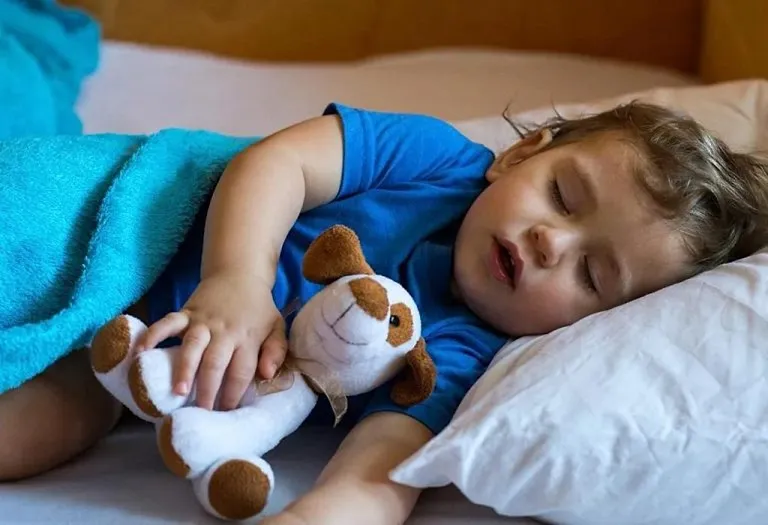




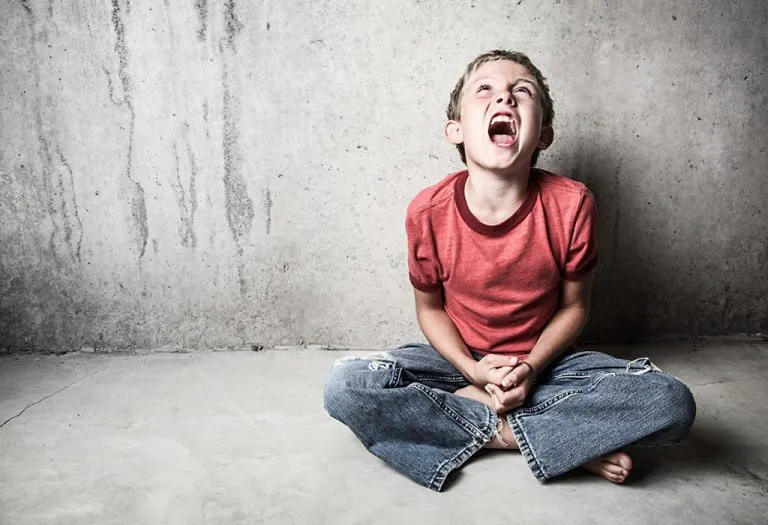

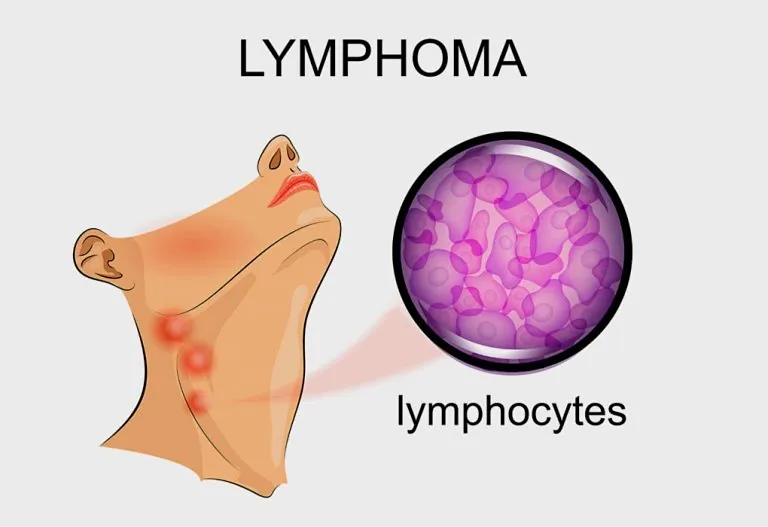
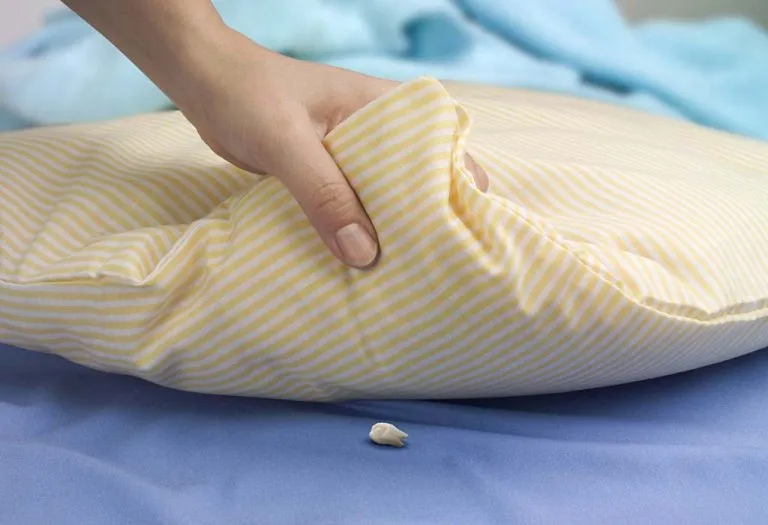
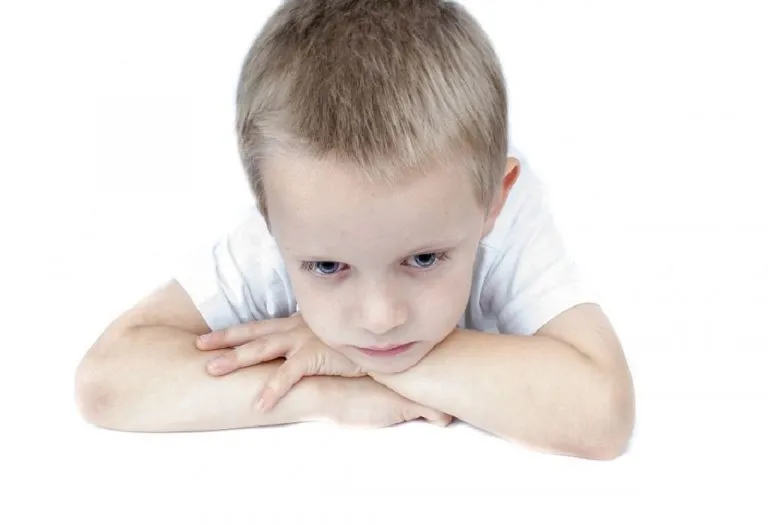
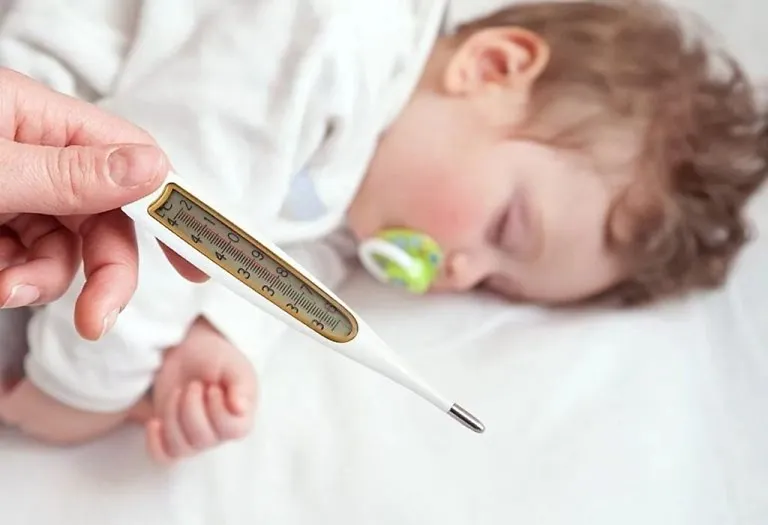

.svg)
















